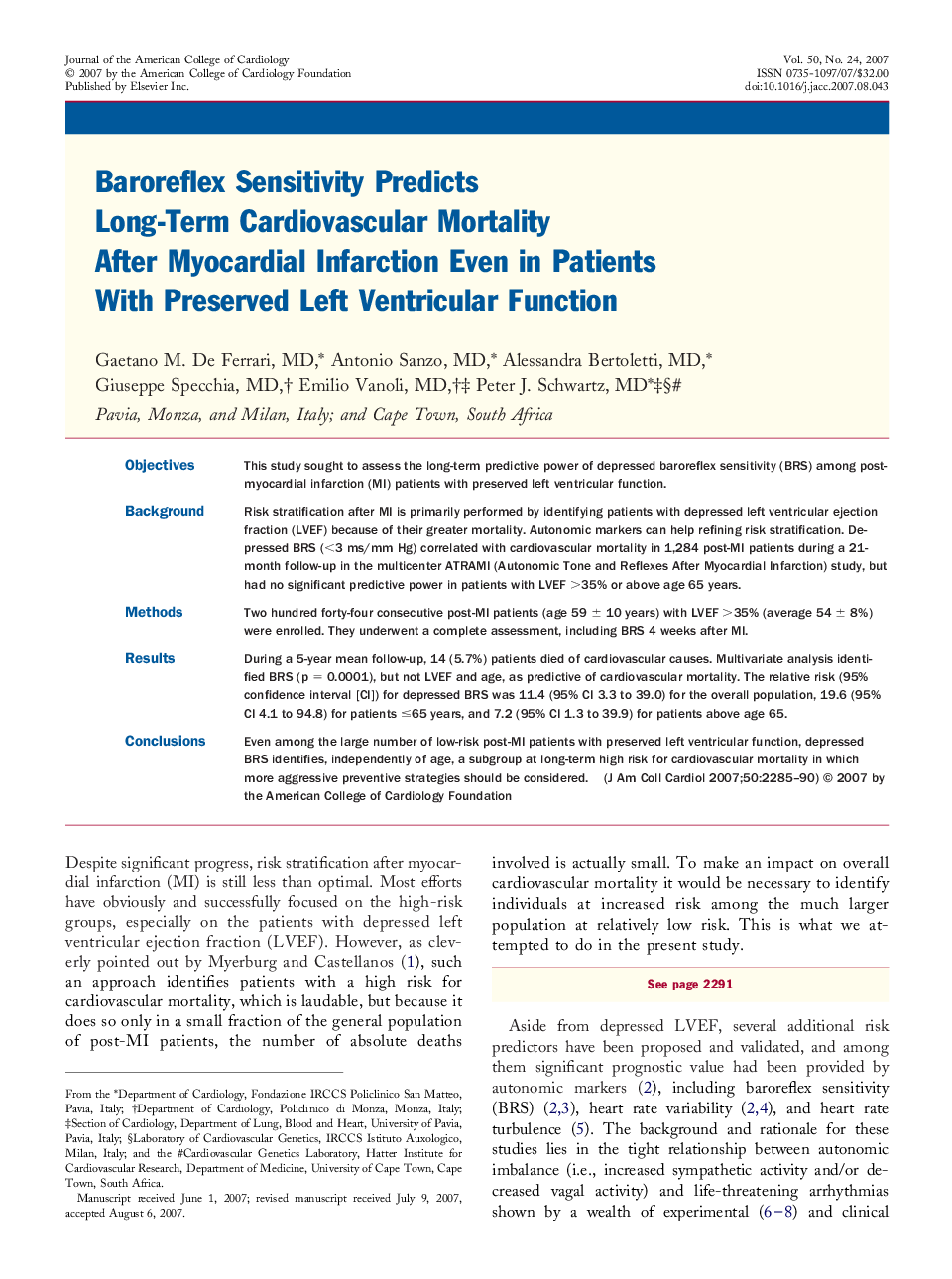| Article ID | Journal | Published Year | Pages | File Type |
|---|---|---|---|---|
| 2953689 | Journal of the American College of Cardiology | 2007 | 6 Pages |
ObjectivesThis study sought to assess the long-term predictive power of depressed baroreflex sensitivity (BRS) among post-myocardial infarction (MI) patients with preserved left ventricular function.BackgroundRisk stratification after MI is primarily performed by identifying patients with depressed left ventricular ejection fraction (LVEF) because of their greater mortality. Autonomic markers can help refining risk stratification. Depressed BRS (<3 ms/mm Hg) correlated with cardiovascular mortality in 1,284 post-MI patients during a 21-month follow-up in the multicenter ATRAMI (Autonomic Tone and Reflexes After Myocardial Infarction) study, but had no significant predictive power in patients with LVEF >35% or above age 65 years.MethodsTwo hundred forty-four consecutive post-MI patients (age 59 ± 10 years) with LVEF >35% (average 54 ± 8%) were enrolled. They underwent a complete assessment, including BRS 4 weeks after MI.ResultsDuring a 5-year mean follow-up, 14 (5.7%) patients died of cardiovascular causes. Multivariate analysis identified BRS (p = 0.0001), but not LVEF and age, as predictive of cardiovascular mortality. The relative risk (95% confidence interval [CI]) for depressed BRS was 11.4 (95% CI 3.3 to 39.0) for the overall population, 19.6 (95% CI 4.1 to 94.8) for patients ≤65 years, and 7.2 (95% CI 1.3 to 39.9) for patients above age 65.ConclusionsEven among the large number of low-risk post-MI patients with preserved left ventricular function, depressed BRS identifies, independently of age, a subgroup at long-term high risk for cardiovascular mortality in which more aggressive preventive strategies should be considered.
